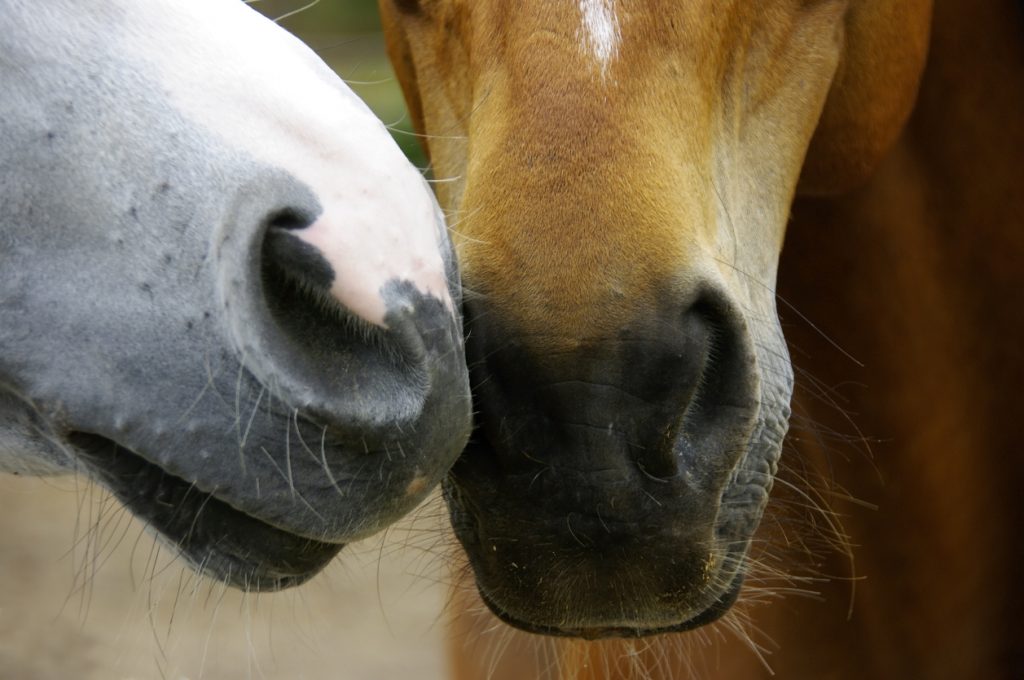Winter is flu season for people. Not only do we tend to gather indoors more during cold weather, but cold, dry conditions aids the spread of the influenza virus. When, though, is flu season for horses?
How equine influenza spreads

Like most other viral diseases, equine influenza spreads via direct contact or through the inhalation of aerosolized droplets dispersed through coughing. The greatest risk factor for horses is close proximity to others of unknown health or vaccination status. In other words, the equine version of “flu season” has little to do with the time of year. Instead the risk increases when horses travel to events where others may be infected.
For example, a horse who spends his summers at community trail rides and shows will be at higher risk of influenza during those warmer months. If, however, you move your normally home-kept horse to a boarding stable for the winter, he is more likely to contract the virus later in the year.
Protect your horse
That means that the best time to vaccinate your horse against influenza depends on his social schedule and living arrangements. To ensure that your horse develops full immunity, ask your veterinarian to immunize him a few weeks before potential exposure.
If your horse has a busy social life, twice-a-year vaccination against influenza might be appropriate. For older horses, or those with demanding travel schedules, talk to your veterinarian about more frequent boosters.
Don’t miss out! The free weekly EQUUS newsletter gives you the latest horse health information delivered right to your in basket! If you’re not already receiving the EQUUS newsletter, click here to sign up. It’s *free*!

